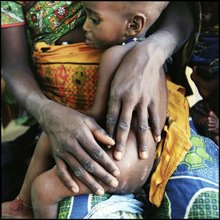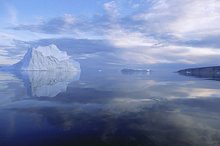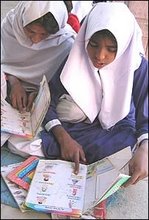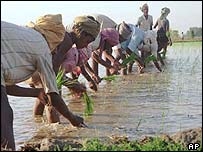PREAMBLE: This is our 4th annual review of topics that we covered over the year. We lead off with praise (“flowers”) and criticism (“fertilizer”) within three categories: global stewardship, international development, and human rights. Then follows a synopsis of each of the 12 blog themes throughout the year.
1. Global Stewardship
This year our pick of flowers for world leadership must go to South Africa for its enormous success in hosting the 2010 FIFA World Cup of Football with evident warmth, safety and competence. This nation, much more than most, symbolizes the universal striving for world peace. So much is evident in its peaceful overthrowing of apartheid, and efforts to seek truth and reconciliation in its internal affairs. A standard is set for others to follow - we can all learn from South Africa. The blog itself celebrates the role of sport in the cause of world peace.
Our pick for the Fertilizer Prize is the recently concluded UN Climate Conference in Mexico. Its not that it was a complete failure, but that it – thanks to countries like our own (Canada) that have been foot-dragging their way forward (some would say backward) in finding ways (not) to meet this challenge – fall far short of what the world community should be doing.
We want to remain positive about the progress in Cancun, but it is very obvious that more fertilizer (this time in a positive sense) is needed. For those interested in examining an authoritative assessment of the outcome, we recommend visiting http://climateprogress.org/2010/12/02/un-climate-summit-in-cancun-mexico/
2. International Development
We make a post-humus gesture of flowers on this occasion to Frank Fenner who passed away at the ripe old age of 95. Fenner, an Australian, was a giant in the field of international and global health, most notably leading the WHO smallpox eradication certification effort, achieved in 1980.
Our choice of Fenner for flowers in this category is doubly relevant, given the poor progress achieved by the world on climate change (see: 2nd paragraph above, under Global Stewardship), as he is recently famous for the following quotation:
“Homo sapiens will become extinct, perhaps within the next 100 years” he told the Australian newspaper in June. “A lot of other animals will too. It’s an irreversible situation. I think it is too late.” Surely we must do more now than simply hope that he is wrong about this.
The Fertilizer award in this category, now in negative sense, goes collectively to the G8 group of countries, for their continuing dismal performance, especially when set against their continued failure to live up to a UN agreement in 1970 that committed rich nations to allocating 0.7% of their GNP for this purpose. Although Sweden, Norway, Luxembourg, Denmark and the Netherlands comfortably meet this target, no G8 nation gets close to it (range = UK 0.52, Italy 0.16). In fact, when compared with other nations monitored by the OECD, the G8 whose brief meetings cost billions of dollars, perform even less well than the rest.
Really now, with a G8 like this, who needs it?
3. Human Rights
We offer flowers to the International Criminal Court (ICC) the permanent tribunal to prosecute individuals for genocide, crimes against humanity, war crimes, and the crime of aggression (although it cannot currently exercise jurisdiction over the crime of aggression). The creation of the ICC is commonly viewed as the most significant reform of international law since 1945, giving teeth to the two bodies of international law that deal with treatment of individuals: human rights and humanitarian law. The court came into being on 1 July 2002 and can only prosecute crimes committed on or after that date. The official seat of the court is in The Hague, Netherlands, but its proceedings may take place anywhere.
We take this opportunity to draw attention to the ICC’s recently launched Outreach Report 2010 and related video, which presents the ICC Outreach Unit’s work from 1 October 2009 to 1 October 2010. The English-language version of this report, the video, and previous annual reports are available on the ICC website.
And we close our awards section this year with a very big pile of very smelly Fertilizer for French President Nicholas Sarkozy for his treatment of the Roma. We agree with the findings of EU Justice Commissioner Viviane Reding, who, in September, likened the recent deportation of almost 1,000 Gypsies to Romania and Bulgaria to Vichy France's treatment of Jews in the second world war. No amount of histrionic pirouetting by the perfidious Sarkozy can allow his decision to stand as other than another blow to France’s patchy record in the annals of human rights.
[http://www.guardian.co.uk/world/2010/sep/14/roma-deportations-france-eu-disgrace].
2010 AS WE RECORDED IT...
January: FOOD 2030 - A NATIONAL REPORT WITH GLOBAL IMPLICATIONS
This issue highlighted the British Government’s new Food Strategy, released January 5th, 2010. It is a timely document, with implications for both the UK and the rest of the world. Here are some of the key findings:
Demand for food and energy will jump 50% by 2030 and for fresh water by 30%, as the world population tops 8.3 billion. Climate change will exacerbate matters unpredictably. The United Nations Environment Programme (UNEP) predicts widespread water shortages across Africa, Europe and Asia by 2025. The amount of fresh water available per head of population will decline sharply during that time. The issue of food and energy security rose high on the political agenda last year during a spike in oil and commodity prices, but then slipped in priority with falling prices. At present, 30-40% of all crops are lost due to pest and disease before they are harvested, and future droughts and increasing salinity will affect growth and produce.
February: CHILD SEXUAL ABUSE BY PRIESTS AND COVER-UP BY CATHOLIC CHURCH
In this issue, we posted verbatim, a CNN report that outlined a decades old cover-up of child sexual abuse at the hands of Catholic priests in Ireland. The actions of Irish priests and the inaction of their church hierarchy represent the height of hypocrisy and flagrant criminal behavior, and bring into disrepute the entire edifice of organized Catholicism.
Although the action now being taken came about as a result of a commission of inquiry put into motion by the nation of Ireland, one then had to ask why this took so long and why no criminal charges have ever been laid.
The world has since learned from a leaked US diplomatic cable that the Irish government was forced to grant Vatican officials immunity from testifying.
[Reference: http://www.guardian.co.uk/world/2010/dec/10/wikileaks-vatican-child-sex-abuse-investigation]
In our view, this clearly does not absolve the state itself from some share of the responsibility and the consequences. Clearly it does not absolve the Vatican, which now appears to have used its enormous influence to engage in obstruction of justice.
March: OVER A BILLION HUNGRY PEOPLE IN THE WORLD - IMF AND FAO REPORT
This issue gives space to the text of an International Monetary Fund report entitled “Hunger on the Rise” developed by David Dawe and Denis Drechsler, and based on The State of Food Insecurity in the World, published by the Food and Agriculture Organization of the United Nations (FAO) in 2009 (full citations provided in the blog).
In summary, world hunger spiked sharply in 2009, significantly worsening an already disappointing trend in global food security since 1996. The combination of food and economic crises has pushed the number of hungry people worldwide to historic levels.
April: DEVELOPMENT ASSISTANCE FOR HEALTH – NEW IMPLICATIONS ABOUT COMPARATIVE AID EFFECTIVENESS OF GOVERNMENT VS NON-GOVERNMENTAL FUNDING
This issue extracted from a report recently distributed by the Pan American Health Organization, PAHO/WHO, referring to work jointly published in the Lancet by Harvard University, and the University of Washington, revealing that investment in the non-government sector may result in more favourable health spending by government than by investing directly in the government sector itself.
Specifically, the study found that debt relief, and development assistance for health (DAH) to government had a negative and significant effect on domestic government spending on health such that for every US$1 of DAH to government, government health expenditures from domestic resources were reduced by $0•43 (p=0) to $1•14. However, debt relief, and development assistance for health DAH to the non-governmental sector had a positive and significant effect on domestic government health spending.
May: MATERNAL MORTALITY – AN INTEGRITY TEST FOR POLITICIANS
For the lead item of this month’s blog, we presented the polite but authoritative view of the Lancet on Canada’s G8 Leadership, emphasizing the inadequacy of Canada’s approach to maternal health as a global public health issue, and followed this by the first good news in many decades, that maternal mortality globally is finally being reduced.
This issue was labeled “an integrity test for politicians” because many of (what Canadian Conservative politicians like to refer to themselves as) the “political class” appear intellectually challenged by scientifically sound evidence regarding the nature of the problem, and what works or doesn’t. It is also an ethical test… whether our ruling party is in it for cheap political gains among their home base, or whether higher reasoning will prevail in the interests of the health of millions of women around the world.
Postscript: Canada’s eventual funding commitments to address maternal and child health (MCH) excluded access to safe abortion, and made only weak provisions for family planning. (This observation was further elaborated in the September blog).
June: THE GAZA FOG OF ASYMMETRICAL VIOLENCE Need for International Inquiry
This issue presented verbatim, a recent report by Amnesty International, outlining the desperate situation of the people of Gaza due to the Israeli blockade. While this seemingly archaic military tactic continues to be excused by Israel as an act of self-defence, independent analyses have revealed this to be capricious in terms of the range of prohibited items, and it is obviously counter-productive to the peace effort although apparently good politics in Israel itself. On the ground however, the situation is nothing less than a humanitarian disaster, especially as over half the Gaza population are children.
July: FOOTBALL WORLD CUP PROMOTES SPORTS AS A FORCE FOR WORLD PEACE
We took the opportunity of the World Cup as a timely moment to take note of initiatives to bond international sport to the cause of world peace. Interestingly, this particular issue turned out to be the most frequently visited issue of our blog since it commenced in 2006!
August: HISTORIC UN RESOLUTION ON WATER AND SANITATION AS HUMAN RIGHTS
On 28th July, the UN General Assembly adopted a resolution calling on States and International Organizations to provide financial resources, build capacity and transfer technology, particularly to developing countries, in scaling up efforts to provide safe, clean, accessible and affordable drinking water and sanitation for all. The Assembly, in a text on the human right to water and sanitation, highlights that 884 million people lack access to safe drinking water and more than 2.6 billion are without access to basic sanitation.
Regretfully a full consensus was not achieved and the resolution was approved with 122 votes in favour, none against and 41 abstentions. We noted disappointment in our own Canadian government, which abstained from the vote, giving no adequate explanation.
September: MILLENNIUM DEVELOPMENT GOALS – OUR UNDERACHIEVING “LEADERSHIP”
Under United Nations auspices, from 20 to 22 September, a Summit on the Millennium Development Goals (MDGs) was held in New York. With five years left until the 2015 deadline to achieve the MDGs, Secretary-General Ban Ki-Moon called on world leaders to accelerate progress towards these goals, the overall aim being to reduce World Poverty.
Despite the dire need of over a billion people living in poverty around the world, it is increasingly clear that few if any of the MDGs will be achieved by the target year of 2015. Clearly there is a crying need for a strong reaffirmation with donor policies and resources to match.
Unfortunately, recent years have witnessed a track record littered with false promises and broken commitments and in some instances shallow comprehension of what is needed to resolve on the major issues underlying world poverty. All too often, “world leaders” have pandered to their domestic political bases rather than genuinely taking on these issues.
October: CANADA LOSING ITS INFLUENCE IN THE WORLD – FOREIGN POLICY FAILURES AND "MAPLE SYRUP DIPLOMACY"
On October 12th, 2010, Canada lost in its bid for a seat on the United Nations Security Council. Despite Canada’s tradition of global leadership, and having gained this seat on every prior bid for it, impoverished Portugal (pop 11.6 million) beat Canada by a virtual landslide. It is no exaggeration to say that, approaching the vote, Canada’s Conservative government revealed a sense of entitlement to the seat, being 7th largest donor of the UN, and hosting this year’s G8 and G20 meetings. Besides Prime Minister Stephen Harper making two appearances before the General Assembly during the run-up (having otherwise mostly ignored the UN), as a bizarre gesture, Maple Syrup gifts were given to representatives of UN members before the vote.
The juxtaposition of these events suggest that a combination of clumsy leadership and diplomatic ineptitude may lie at the root of this foreign policy failure. While Canada’s stated principles do create positive images, when you look closely at how they are interpreted under the Conservative government, the reality reveals a narrow vision that is too often arrogant, ignorant and ignoble.
November: CHINA SHAMES ITSELF - IMPRISONS MAN FOR PUBLIC HEALTH ADVOCACY
In this issue we draw attention to how China is persecuting a man following his advocacy on behalf of public health, especially the health of children.
This is the first time we have given space to the issue of human rights in China. Like many other observers, we are impressed by China’s material advances and recognize its growing importance on the world stage. However, until human rights are elevated in importance, it will fall short of global expectations as a potential world leader.
December: INTERNATIONAL & GLOBAL DEVELOPMENT – YEAR IN REVIEW 2010…
This Issue!
AND A HAPPY NEW YEAR!We extend to readers our best wishes for 2011, with hopes that the global challenges of recent years will be better understood and more humanely managed going forward. For this to happen we need more enlightened world leadership. PacificSci will continue to offer an independent view.
FROM a Great Canadian and World Statesman
"A great gulf... has... opened between man's material advance and his social and moral progress, a gulf in which he may one day be lost if it is not closed or narrowed..."
Lester B Pearson
http://nobelprize.org/nobel_prizes/peace/laureates/1957/pearson-lecture.html
Saturday, 18 December 2010
Subscribe to:
Comments (Atom)
INSPIRATIONAL WELCOME ............................... from T.S.Eliot's "Little Gidding"
If you came this way From the place you would come from... It would be the same at the end of the journey...
If you came, not knowing what you came for, It would be the same... And what you thought you came for Is only a shell, a husk of meaning... From which the purpose breaks only when it is fulfilled If at all.


























